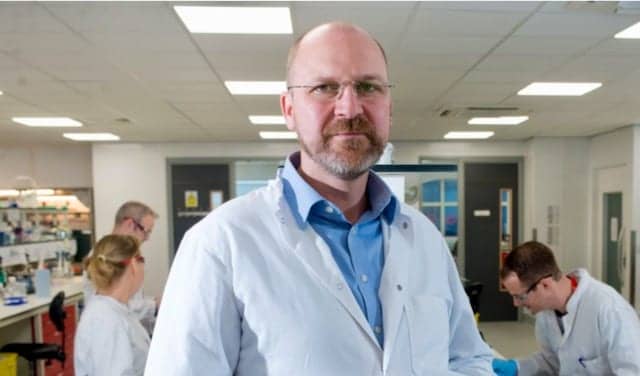A bead-assisted mass spectrometry (BAMS) diagnostic for covid-19 infection, under development by Avacta Group, Cambridge, UK, with partner Adeptrix, Beverly, Mass, has reached prototype stage and can detect the coronavirus spike protein in model samples in the concentration range appropriate for a clinical diagnostic test.
The BAMS assay uses the Affimer reagents specific to the SARS-CoV-2 virus recently developed by Avacta to capture the virus spike protein from the sample for rapid detection by mass spectrometry.
A prototype assay has now been developed and evaluated by Adeptrix using model samples containing the coronavirus spike protein. The unique method uses Affimer-coated beads to break up the spike protein captured from samples, and is able to identify fragments of the spike protein using mass spectrometry, at concentrations in the range found in patient samples generated from standard throat swabs.
Combining the selectivity of the Affimer reagents used to capture the virus spike protein with the precision and accuracy of mass spectrometry detection provides for a very high degree of specificity in the assay.
The next step in the development of the final product, which is to run on the installed base of mass spectrometers in clinical laboratories around the world, is to evaluate and optimize the BAMS assay using patient samples at laboratory sites in the United Kingdom and the United States. This step will be taken imminently, before moving to manufacturing, clinical validation to quantify sensitivity and specificity, and application for CE marking and FDA authorization for professional use.
“I am very pleased with the rapid progress made by our partners at Adeptrix and delighted that the Affimer reagents that we have developed to detect the SARS-CoV-2 spike protein are working very well in the BAMS assay,” says Alastair Smith, PhD, chief executive officer of Avacta Group. “This bodes well for all our covid-19 antigen test development programs.”
A covid-19 BAMS assay could provide highly sensitive and specific testing for up to a thousand samples per day in the hospital setting. The assay will use standard equipment that is available but not currently used for coronavirus testing, thus contributing significantly to an increase in global testing capacity.
For more information, visit Avacta Group and Adeptrix.
Featured image: Alastair Smith, PhD, Avacta Group.





